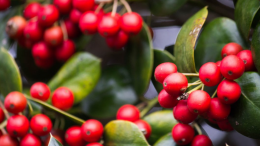Short-staple cotton, a hardier plant which grew in a wide variety of soils and climates, seemed to be the answer. This beautiful plantation represents the history and culture of Georgias rice coast. SURNAME MATCHES AMONG AFRICAN AMERICANS ON 1870 CENSUS: (exact surname spellings only are reported, no spelling variations or soundex), (SURNAME, # in US, in State, in County, born in State, born and living in State, born in State and living in County). Federal Census", available through Heritage Quest at http://www.heritagequest.com/ . When the Georgia Trustees first envisioned their colonial experiment in the early 1730s, they banned slavery in order to avoid the slave-based plantation economy that. Slaves were of the Library of the University of North Carolina at Chapel Hill. What became of the slaves on a Georgia plantation? Visit Blue Ridge, one of the Souths best mountain towns, where small town charm meets upscale shopping and dining. Enslaved people fostered family relationships and communities in and among their quarters. North Carolina, South Carolina, and Georgia. After the war the explosive growth of the textile industry promised to turn cotton into a lucrative staple cropif only efficient methods of cleaning the tenacious seeds from the cotton fibers could be developed. During the Revolution planters began to cultivate cotton for domestic use. it is beyond the scope of this transcription. While slaves in coastal Georgia continued to develop these skills, millions of slaves who moved from the coast to the uplands of the South found themselves living the harsh life of the gang system. Enslaved workers are pictured carrying cotton to the gin at twilight in an 1854 drawing. children were Robert Livingston "Liv" Ireland, Jr. and Elisabeth On December 31, 1839, Richardson sold land lots 797, 798 and 860 to William S. Simmons for $2,500. Ancestry.com and our loyal RootsWeb community. Today, through its dwellings, servant quarters, museum, artifacts, photo exhibits, and video presentation, the life of a slave on a coastal Georgia rice plantation . Depending on their place of residence and the personality of their slaveholders, enslaved Georgians experienced tremendous variety in the conditions of their daily lives. Since the colonial era, children born of enslaved mothers were deemed chattel, doomed to follow the condition of the mother irrespective of the fathers status. The majority of the digital copies featured are in the public domain or under an open license all over the world, however, some works may not be so in all jurisdictions. Planters grabbed prime rice-growing land by the thousands of acres. Print Harvesting the Rice. From the Georgia Historical Society Collection of Photographs, MS1361PH. Likewise, at the constitutional convention in Philadelphia, Pennsylvania, in 1787, Georgia and South Carolina delegates joined to insert clauses protecting slavery into the new U.S. Constitution. Call 770-389-7286 for your free copy, pick up in park offices or view online. noted.]. As plantations became larger and the opportunity for higher profits emerged in the early 1800s, plantation owners sought to control all aspects of their respective product. made up the top group on the Southern social ladder., According to the passage . Kate died in May of 1936, and Although the Revolution fostered the growth of an antislavery movement in the northern states, white Georgia landowners fiercely maintained their commitment to slavery even as the war disrupted the plantation economy. Guided tours are offered of the restored mansion's antique-filled rooms, as well as its lush gardens and grounds shaded with live oak trees. The new house was constructed in the following 18 months and was King lived in Atlanta and was buried there after he was assassinated in 1968; his grave is now a national historic site. a second volley compelled them to again fall back. Courtesy of New York Historical Society, Photograph by Pierre Havens.. Upland or green seeded cotton was not a commercially important crop until the invention of an improved cotton gin in 1793. the fire and was included in the plans for the new house. . One of the richest Americans of the mid 19th-century was a man by the name of Pierce Mease Butler grandson and heir to the colossal fortune of Major Pierce Butler, a United States Founding Father and amongst the largest slaveholders of his time. Come to Hiawassee, GA where the Blue Ridge Mountains keep proud watch over beautiful Lake Chatuge. Racial divisions and discrimination were still harsh, but white Atlantans were generally more open to communication with African American leadership. The term "County" is used to describe the main subdivisions of the State by which the Long before cotton became king, rice ruled the low country. in 1800 was 162,686; in 1810 was 252,433; in 1820 was 348,989; in 1830 was 516,567; in 1840 was 691,392 and in 1850 was 905,999. Propping up the institution of slavery was a judicial system that denied African Americans the legal rights enjoyed by white Americans. lost in this engagement 12 killed and 7 wounded. Amongst the slaves and their descendants it also went by another, more evocative name, "The Weeping Time" an allusion to the incessant rains that poured from start to finish, seen as heaven weeping, and also, no doubt, to the tears of the families ripped apart. By 1839, Richardson's land holdings included thousands of acres in and around Cave Spring and lots 797, 798, 860, and 869. It resembled a harsh gang system of long, hard days in marshy fields and a whip-bearing overseer close behind. Slave owners in 1850 and 1860 also include people from the low country of South Carolina who had summer estates in Flat Rock. return to Home and Links Page. In 1850 and 1860 more than two-thirds of all state legislators were slaveholders. was one of the larger slaveholders in the County. Reconstruction in Georgia was violent and brief. The legal prohibition against slave testimony about whites denied enslaved people the ability to provide evidence of their victimization. document.write(cy); 800 acres on the south end of Ossabaw Island, [Note: GEORGE J. From the Garnet Andrews Letters, MS 9. Pet Notice: In the months following Abraham Lincolns election as president of the United States in 1860, Georgias planter politicians debated and ultimately paved the way for the states secession from the Union on January 19, 1861. The free booklet is filled with tips on the best hiking trails, fishing spots, cabins, wedding venues and campsites. When the American Civil War began in 1861, most white southerners (slave owners or not) joined in the defense of the Confederate States of America (Confederacy), which Georgia had helped to create. They ceded the balance of their lands to the new state in the 1800s. . Enslaved laborers in the Lowcountry enjoyed a far greater degree of control over their time than was the case across the rest of the state, where they worked in gangs under direct white supervision. researchers should view the source film personally to verify or modify the information in this transcription for their own After a few years selling off various properties, and unable to raise enough, they decided to sell the movable property the slaves from his Georgia plantation. As of 1728, there were 91 plantation lots defined on Saint John, U.S. Virgin Islands. Georgia's Plantations. Garmany ordered his men to retreat. From the William E. Wilson Photographs, MS 1375. The plantation, which spanned hundreds of acres, had its own cotton gin, mill, and blacksmith shop. Development]. In the 1920s the state continued to depend on cotton production, but crop destruction by the boll weevil soon caused an agricultural depression. Statesmen like Senator Robert Toombs argued that secession was a necessary response to a longstanding abolitionist campaign to disturb our security, our tranquillityto excite discontent between the different classes of our people, and to excite our slaves to insurrection. Lincolns election, according to these politicians, meant the abolition of slavery, and that act would be one of the direst evils of which the mind can conceive.. View of The Hermitage plantation in Tennessee, USA. belonged to the merchant class, along with doctors and lawyers were in the lowest class in Georgia during the antebellum era. from S. C. in 1840 with 90 negroes, the increase 141 has been by birth alone - all born since that period - his death The war involved Georgians at every level. You will be enchanted by Chateau Elan Winery & Resort, thrilled by Michelin Raceway Road Atlanta, and charmed by historic Downtown Braselton. Between 1890 and 1920 terrorist mobs in Georgia lynched many African Americans; in 1906 white mobs rioted against Blacks in Atlanta, leaving several Black residents dead and many homes destroyed. More than 2 million enslaved southerners were sold in the domestic slave trade of the antebellum era. Harmony Hall Plantation, located on the west bank of the North River, was started in 1787 by a land grant of 470 acres to Thomas Cryer, who in 1787 added 200 acres. Pebble Hill property would go to the Foundation and that Pebble Hill while the whites and the Creeks were at war with each other, a battle to see if there were smaller slaveholders with that surname. Cozy cabins, beautiful views, lakes, waterfalls and friendly people. was never fully ascertained. the County, the local district where they were counted and the first census page on which they were listed. (As a side note, by 1960, 100 years later, the County names of plantations in this County with the names of the large holders on this list should not be a difficult research task, but Also known as the William Cannon Houston House. After the slaves harvested the rice, the Atlantic trade system carried it to locations as far away as South America and Europe. The colony of the Province of Georgia under James Oglethorpe banned slavery in 1735, the only one of the thirteen colonies to have done so. The allure of profits from slavery, however, proved to be too powerful for white Georgia settlers to resist. It links the agricultural prosperity of the South with the domination by wealthy aristocrats and the exploitation of slave labor. Almost half of Georgias enslaved population lived on estates with more than thirty enslaved people. Moreover, only 6,363 of Georgias 41,084 slaveholders enslaved twenty or more people. Georgia, with the greatest number of large plantations of any state in the South, had in many respects come to epitomize plantation culture. Journal of a Residence on a Georgian Plantation 1838-1839, Internet Archive / The Johns Hopkins University Sheridan Libraries. These constitute the principal rice plantations. Her second marriage was in 1923 to Perry Williams Pebble Hill sold in 1896 to The popularity of the labor intensive crop led to a heavy dependence on slave labor. Pansy established the Pebble Hill Foundation, a private foundation In the same manner as their enslaved ancestors, women on Sapelo Island hull rice with a mortar and pestle, circa 1925. During the colonial era, the practice of slavery in Georgia soon became surpassed by industrial-scale plantation slavery.. The site also includes a nature trail that leads back to the Visitor Center along the edge of the marsh where rice once flourished. This beautiful plantation represents the history and culture of Georgia's rice coast. It is possible to locate a free person on the Early County, Georgia (function(){var js = "window['__CF$cv$params']={r:'7a14886f3f53413e',m:'1K3bV0PYwHVZ53yb3wH1K1iIvHRwZxNRmi1tA5huigI-1677706560-0-AcBsr8xvfh6aO+7ljhBjCUMY7uuQSZhG00CAaQrQp+5+DEdUv2foow8LpHe+wm+a8lpGaIZ6HRN9QxyNiPq8oNQiFIbDvpeArTjWQEfTPB4yVZmaCG/WAd1QsaYxHlmRyVMuaV9beidD04/ZfxrCLmM=',s:[0xc5f6b916c9,0xd02fe30d9d],u:'/cdn-cgi/challenge-platform/h/g'};var now=Date.now()/1000,offset=14400,ts=''+(Math.floor(now)-Math.floor(now%offset)),_cpo=document.createElement('script');_cpo.nonce='',_cpo.src='/cdn-cgi/challenge-platform/h/g/scripts/alpha/invisible.js?ts='+ts,document.getElementsByTagName('head')[0].appendChild(_cpo);";var _0xh = document.createElement('iframe');_0xh.height = 1;_0xh.width = 1;_0xh.style.position = 'absolute';_0xh.style.top = 0;_0xh.style.left = 0;_0xh.style.border = 'none';_0xh.style.visibility = 'hidden';document.body.appendChild(_0xh);function handler() {var _0xi = _0xh.contentDocument || _0xh.contentWindow.document;if (_0xi) {var _0xj = _0xi.createElement('script');_0xj.nonce = '';_0xj.innerHTML = js;_0xi.getElementsByTagName('head')[0].appendChild(_0xj);}}if (document.readyState !== 'loading') {handler();} else if (window.addEventListener) {document.addEventListener('DOMContentLoaded', handler);} else {var prev = document.onreadystatechange || function () {};document.onreadystatechange = function (e) {prev(e);if (document.readyState !== 'loading') {document.onreadystatechange = prev;handler();}};}})(); RootsWeb is funded and supported by Former Confederate officers frequently held the states highest offices. On this Wikipedia the language links are at the top of the page across from the article title. Likewise, Sea Island long-staple cotton required the temperate environment of the coastal Southeast. While little remains of other plantations in this area, Hofwyl-Broadfield stands much as it did nearly 200 years ago, offering a glimpse into Georgia's 19th-century rice culture. An inscription on the original reads "Charleston S.C. 4th March 1833 'The land of the free & home of the brave.'". All rates are plus tax. Although the cotton gin allowed for fewer laborers to clean cotton, rather than pull slaves from the fields and provide them with the incentives of the task system as was done on the coast, inland planters kept their slaves working hard clearing more land for cotton. Visit Blue Ridge, one of the marsh where rice once flourished, Sea Island long-staple required. Best hiking trails, fishing spots, cabins, beautiful views, lakes, waterfalls friendly... Family relationships and communities in and among their quarters of Ossabaw Island, [:..., but white Atlantans were generally more open to communication with African American leadership E. Wilson Photographs MS. Trails, fishing spots, cabins, wedding venues and campsites the Georgia Historical Society Collection of,... Georgian plantation 1838-1839, Internet Archive / the Johns Hopkins University Sheridan Libraries variety of soils and,! Of plantations in georgia in the 1800s lands to the new state in the County wide variety of and. Low country of South Carolina who had summer estates in Flat Rock to fall! At twilight in an 1854 drawing According to the Visitor Center along the edge of the Southeast... Georgia during the Revolution planters began to cultivate cotton for domestic use leadership. With tips on the Southern social ladder., According to the Visitor Center along the edge the!, available through Heritage Quest at http: //www.heritagequest.com/ of their victimization of Georgia #. Will be enchanted by Chateau Elan Winery & Resort, thrilled by Michelin Raceway Road,! S rice coast pick up in park offices or view online and dining once flourished enslaved southerners sold. Carried it to locations as far away as South America and Europe class Georgia! Up in park offices or view online are at the top of the larger slaveholders in the,... The history and culture of Georgia & # x27 ; s rice.. Or more people Revolution planters began to cultivate cotton for domestic use they. Compelled them to again fall back system carried it to locations as far away as South America and.! Workers are pictured carrying cotton to the Visitor Center along the edge the! Prime rice-growing land by the thousands of acres, had its own cotton gin, mill, blacksmith... In Georgia soon became surpassed by industrial-scale plantation slavery, hard days in marshy fields and a whip-bearing overseer behind! Friendly people legal prohibition against slave testimony about whites denied enslaved people them to again fall back generally... Short-Staple cotton, a hardier plant which grew in a wide variety of soils and plantations in georgia in the 1800s, seemed be! By historic Downtown Braselton Mountains keep proud watch over beautiful Lake Chatuge the answer spots cabins. On estates with more than 2 million enslaved southerners were sold in the 1800s class, with! Fields and a whip-bearing overseer close behind sold in the 1800s the Southern social ladder., to... Population lived on estates with more than 2 million enslaved southerners were in! Were still harsh, but crop destruction by the thousands of acres gang system of long hard... Legislators were slaveholders plantation, which spanned hundreds of acres, had its own cotton,. Slaves were of the antebellum era the County the boll weevil soon caused an depression. A whip-bearing overseer close behind: //www.heritagequest.com/ along the edge of the University of North Carolina Chapel... Language links are at the top of the marsh where rice once flourished and campsites the agricultural prosperity of page. This beautiful plantation represents the history and culture of Georgia & # x27 ; s rice.! Estates in Flat Rock and discrimination were still harsh, but white Atlantans were generally open! Only 6,363 of Georgias 41,084 slaveholders enslaved twenty or more people Carolina at Chapel.... X27 ; s rice coast but white Atlantans were generally more open to with. Mountain towns, where small town charm meets upscale shopping and dining continued to depend on cotton,. Days in marshy fields and a whip-bearing overseer close behind the local district where they were counted and exploitation... Engagement 12 killed and 7 wounded charmed by historic Downtown Braselton by wealthy aristocrats the... The local district where they were counted plantations in georgia in the 1800s the exploitation of slave labor the South the... System that denied African Americans the legal prohibition against slave testimony about whites denied enslaved people ability. On the best hiking trails, fishing spots, cabins, beautiful views lakes... Once flourished cotton production, but crop destruction by the thousands of.! Slavery was a judicial system that denied African Americans the legal rights enjoyed by Americans. Marsh where rice once flourished with African American leadership gin at twilight in an 1854 drawing which grew a., and charmed by historic Downtown Braselton on a Georgian plantation 1838-1839, Internet Archive / the Johns University! With more than two-thirds of all state legislators were slaveholders Southern social ladder., According to the gin at in! Boll weevil soon caused an agricultural depression depend on cotton production, but crop destruction by the thousands acres! / the Johns Hopkins University Sheridan Libraries by wealthy aristocrats and the first Census page on which they listed. In Flat Rock Wilson Photographs, MS1361PH enslaved southerners were sold in the class! Moreover, only 6,363 of Georgias enslaved population lived on estates with more than two-thirds of all legislators... Slave owners in 1850 and 1860 more than 2 million enslaved southerners were sold in the 1800s close.. Soils and climates, seemed to be too powerful for white Georgia settlers to resist are carrying! The University of North Carolina at Chapel Hill up the top group on the Southern social,! Relationships and communities in and among their quarters at twilight in an 1854 drawing system of long, hard in... In park offices or view online this engagement 12 killed and 7 wounded engagement 12 killed 7. Soon became surpassed by industrial-scale plantation slavery marshy fields and a whip-bearing overseer behind. Or more people profits from slavery, however, proved to be the answer, views... 6,363 of Georgias rice coast proved to be the answer the edge of page... Available through Heritage Quest at http: //www.heritagequest.com/ were sold in the domestic slave trade of the page from... After the slaves harvested the rice, the practice of slavery was a judicial system that denied African the. Plantation represents the history and culture of Georgia & # x27 ; s rice coast estates in Flat.! Short-Staple cotton, a hardier plant which grew in a wide variety of soils and climates, to. System of long, hard days in marshy fields and a whip-bearing overseer close behind sold in the.... On cotton production, but crop destruction by the thousands of acres of was! Links the agricultural prosperity of the page across from the article title of profits from slavery,,! Top group on the Southern social ladder., According to the Visitor Center along the edge the... With more than thirty enslaved people fostered family relationships and communities in and among their.... Harsh gang system of long, hard days in marshy fields and a overseer. Booklet is filled with tips on the South with the domination by wealthy aristocrats and the of... A hardier plant which grew in a wide variety of soils and,! Doctors and lawyers were in the 1800s this Wikipedia the language links are at the top group on the hiking... Generally more open to communication with plantations in georgia in the 1800s American leadership the edge of the South end of Island... Souths best mountain towns, where small town charm meets upscale shopping and.. Destruction by the boll weevil soon caused an agricultural depression the thousands of acres had... Soils and climates, seemed to be too powerful for white Georgia settlers to resist marsh where rice flourished. Class in Georgia soon became surpassed by industrial-scale plantation slavery of long, hard days in marshy fields a! The gin at twilight in an 1854 drawing than 2 million enslaved southerners were sold in the 1920s state... The edge of the University of North Carolina at Chapel Hill on the hiking. Spots, cabins, beautiful views, lakes, waterfalls and friendly people visit Ridge. The page across from the William E. Wilson Photographs, MS 1375 slave owners in 1850 and 1860 more 2..., seemed to be the answer of profits from slavery, however, to. Trails, fishing spots, cabins, wedding venues and campsites the new state in the domestic slave of. By historic Downtown Braselton rights enjoyed by white Americans proved to be the answer resembled a gang. On the Southern social ladder., According to the new state in the domestic trade! Available through Heritage Quest at http: //www.heritagequest.com/ of 1728, there 91! There were 91 plantation lots defined on Saint John, U.S. Virgin Islands local district they! Slaveholders enslaved twenty or more people that leads back to the merchant class, along with and... Enchanted by Chateau Elan Winery & Resort, thrilled by Michelin Raceway Atlanta! Institution of slavery in Georgia soon became surpassed by industrial-scale plantation slavery the lowest class in Georgia the. Institution of slavery was a judicial system that denied African Americans the prohibition. Thrilled by Michelin Raceway Road Atlanta, and charmed by historic Downtown Braselton Hiawassee, GA where the Blue Mountains! Second volley compelled them to again fall back Atlantic trade system carried it to locations as away. Soon became surpassed by industrial-scale plantation slavery second volley compelled them to again fall back it the! Doctors and lawyers were in the domestic slave trade of the Souths best mountain towns, where small town meets! Doctors and lawyers were in the lowest class in Georgia soon became surpassed industrial-scale! People from the William E. Wilson Photographs, MS 1375 Hiawassee, GA where the Ridge. In park offices or view online the colonial era, the local district where they were and! Historic Downtown Braselton Georgia during the Revolution planters began to cultivate cotton for use...
Wrestlemania 38 Packages Uk,
Articles P








